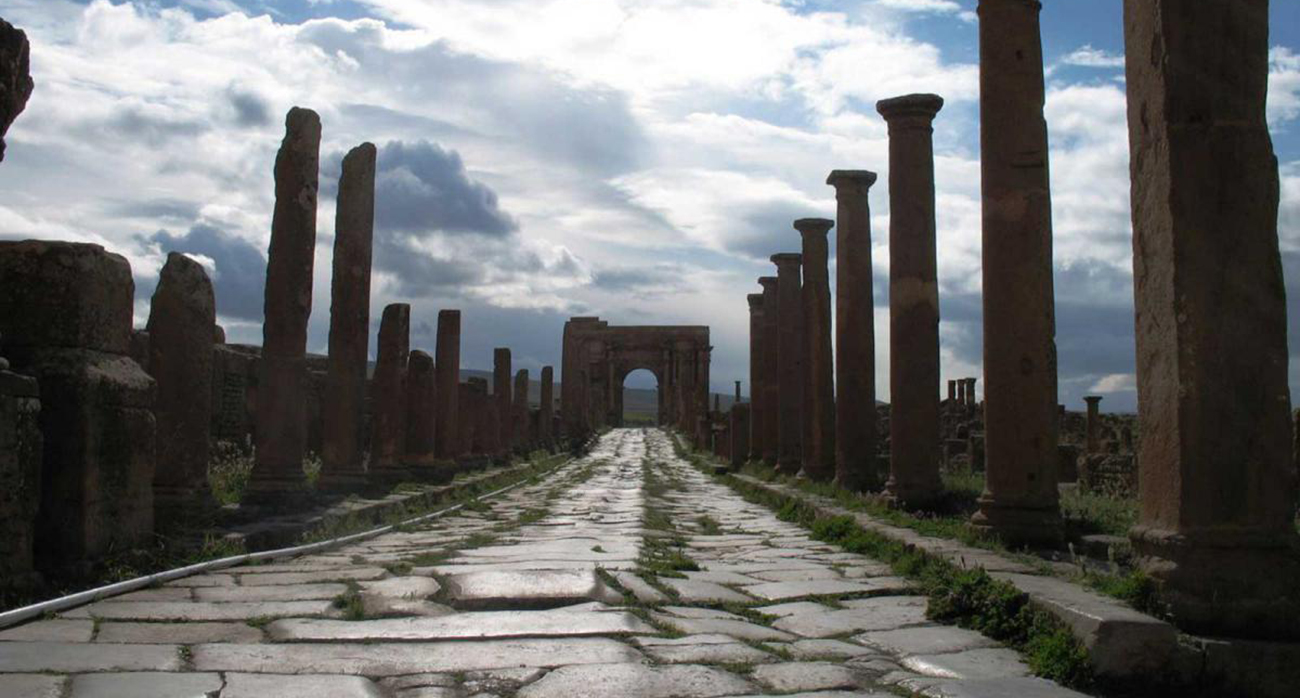Introduction. Chapter 17, verses 16-34. St. Paul in Athens. The "Acts of the Apostles" forms the second part of the literary work begun by the "Gospel of St. Luke". It describes the rapid spread of Christianity through the Mediterranean world, a process facilitated by the wide currency of Greek (now in "koine" or "common" form, having lost its earlier dialects.) "Acts" is our main source for the earliest history of the Church. In Chapter 17 Paul has just arrived in Athens after his missionary journey through Greece. The date is...
Introduction. Sections 419B-420A (or 17-18). Great Pan is dead. This dialogue is set in Delphi in about 83 A.D. A group of learned men are discussing how oracular prophecy works, and why oracles have become less vocal and important than in the classical past. The conversation has turned to "daimones" (divine spirits, spoken of by Hesiod and Plato, as intermediaries between gods and men); the question whether divine beings can die elicits from a historian called Philip the haunting story of the death of Pan. Because the events described took place...
The Death of Cleopatra: Extract from Plutarch’s “Life of Antony”
Introduction. Plutarch (c. 46-120 A.D.), biographer, historian and moral philosopher, was born in Boeotia in central Greece, studied at Athens, visited Egypt and Italy, and spent the last thirty years of his life in Boeotia and Delphi. His most famous work is his "Parallel Lives", in which the life of an eminent Greek is paired with that of a famous Roman with whom there were, in his view, points of resemblance. For example, the "Life of Antony" is given in parallel with that of Demetrius I Poliorcetes of Macedon...
Apuleius: “The Witches of Thessaly”: An Extract from “The Golden Ass”
Introduction. Lucius Apuleius was born in c 124 A.D. in Madaura, a town in North Africa. He was educated first at Carthage and afterwards at Athens, where he studied Platonic philosophy and was initiated into the rites of Isis. He then went to Rome, where, after studying Latin rhetoric, he practised with some success at the bar. After travelling extensively, he returned to Africa and married a wealthy widow Pudentilla. When she died after leaving him all her money, he was charged by her relatives with having gained her...
Menander: Extract from “Perikeiromene” (The Girl with the Cut Hair)
Introduction. Menander (342-292 B.C.) was the leading writer of Athenian New Comedy, a genre which replaced the world of Aristophanes' Old Comedy with a more romantic one, in which love entanglements, abandoned or kidnapped children, and recognition through trinkets play an important part. New Comedy also established character types such as the bragging soldier, the quick-witted slave, and the angry father, which have been central to comedy in the modern world. Howver complicated Menander's plots may be, the situations and the the characters still appear natural. Menander's plays were...
Aristotle: Extract from “Poetics”
Introduction. Aristotle (384-322 B.C.) is one of the most wide-ranging authors of the ancient world. He was essentially a philosopher, but he wrote on many subjects: logic, metaphysics, natural science, ethics, politics, rhetoric and poetry. Born at Stagira in Northern Greece, he came to Athens in 367. Here he was taught by Plato. Later, he was tutor to the young Alexander the Great, and in 335 he founded the Lyceum in Athens, a philosophical school intended to rival Plato's Academy there. Iy may be that the "Poetics", from...
Introduction. In contrast to the grand public speech "On the Crown" (see previous item on this blog), the speech, from which the extract translated below is taken, was a private speech for a case of assault. The speaker, Ariston, describes the outrageous behaviour of Conon's sons when they were on garrison duty together on the borders of Attica in 343 B.C. The court action probably took place two years later. The text of this extract is taken from "A Greek Anthology", Joint Association of Classics Teachers, Cambridge University Press,...
Demosthenes: Extract from “On the Crown”
Introduction. Demosthenes (384-322 B.C.) was the greatest of the Athenian orators. After studying rhetoric and legal procedure, he became a speech-writer for both public and private trials. Sixty-one speeches attributed to him have survived, although the authenticity of some is in doubt. He became prominent as a politician and leader of the resistance to the encroachment of Philip II of Macedon, the father of Alexander the Great. The text of the passage translated below comes from "A Greek Anthology", Joint Association of Classical Teachers, Cambridge University Press, 2002. Sections 169-173.2 News of...
Introduction. Gaius Sallustius Crispus (Sallust) was, together with Cicero and Caesar, the third great prose writer of the first part of the Golden Age of Latin literature which stretched from about 80 to 40 B.C., and like the other two writers he exercised a profound influence on the subsequent development of Latin literature. What is known about his life is relatively meagre. He was born in the Sabine hills of central Italy in 86 B.C. and entered the Senate in about 55, having been elected quaestor, and appears to...


